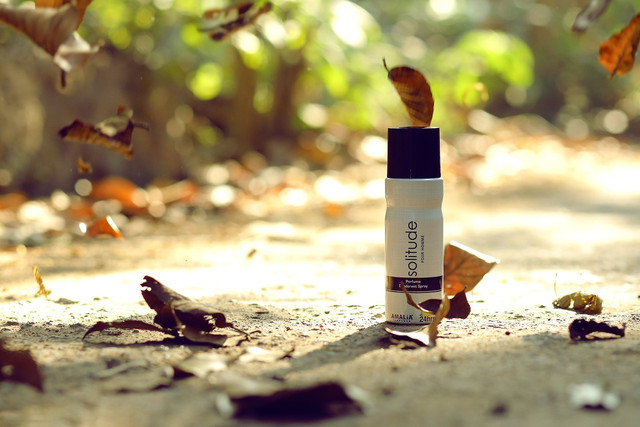Deodorants and antiperspirants work in different ways to keep you smelling and feeling fresh. The difference between deodorant and antiperspirant can be confusing, so keep reading to find out how the two products differ.
The terms deodorant and antiperspirant have become interchangeable and there is definitely some misunderstanding surrounding the differences between the two products. Almost everyone sweats, and sweating is an important function of our bodies as it is our way of regulating our temperature and releasing toxins.
What is Deodorant?

Deodorants mask against body odor, which occurs when the bacteria on your skin break down the proteins found in sweat. Deodorants are normally alcohol-based, and studies show that this gives deodorants antibacterial properties to fight bacteria. When applied to your skin, they turn your skin acidic in order to make it less attractive to bacteria. Deodorants are often fragranced, which helps to keep you smelling fresh. But artificial fragrances and other substances can also have a negative impact on your health.
When buying a deodorant, it is best to shop sustainably. Look for labels like leaping bunny, to make sure the product was not tested on animals. Also, have a look for vegan and zero-waste deodorant brands. You can consult apps like the Think Dirty App in order to check if your deodorant contains substances that can harm your health. And you can make your own homemade deodorant, to ensure that it is made with natural ingredients.
What is Antiperspirant?
Whereas deodorants mask body odor, antiperspirants control sweat production. They work by forming a gel when applied to the skin, which temporarily blocks your body’s eccrine glands, so they cannot produce sweat. ‘Antiperspirant is ideal for those who want to decrease wetness or feel they sweat more than usual’, says Kiran Mian, a dermatologist in New York.
Antiperspirant is considered a drug and is regulated by the Food and Drug Administration (FDA), since it is specifically designed to control sweating.
What Are the Differences Between Deodorant and Antiperspirant?



There are several differences between deodorants and antiperspirants.
1. Deodorant and antiperspirant have different goals. Deodorants mask odor, whilst antiperspirants reduce how much you sweat.
2. They have different ingredients.
- Deodorants are usually alcohol-based, in order to kill odor-causing bacteria. Most deodorants also contain Triclosan, another antibacterial ingredient used to stop the growth of bacteria, as well as fragrances that mask body odor.
- Most antiperspirants contain aluminum, which is the ingredient used to stop sweat production. Antiperspirants also contain parabens to keep the products free from bacteria.
3. You apply them at different times. You can apply deodorant at any time during the day, and reapply when necessary. In comparison, it is most effective to apply antiperspirant at night time, when your sweat glands are less active and your body temperature is low.
What are the Benefits and Drawbacks?
Depending on what your personal needs are, there are benefits and drawbacks to using deodorants and antiperspirants.
Benefits
- Using deodorant or antiperspirant can make you feel more confident and less self-conscious as they leave you smelling and feeling fresh.
- Antiperspirant will reduce underarm wetness, which is good if you sweat excessively.
- Using a natural and zero waste deodorant or antiperspirant, which is free from chemicals as well as plastic packaging, will have benefits for your body and the environment, especially if your skin gets irritated from the ingredients in regular deodorants and antiperspirants.
Drawbacks
- A drawback to both products is that they may need to be reapplied for continued effectiveness, as washing your body will remove the product.
- Deodorants and antiperspirants often come in plastic packaging, meaning that they are not zero waste, so this causes environmental damage.
- Deodorants and antiperspirants often contain harmful ingredients such as aluminum and Triclosan. Although a 2016 study concluded that there is no link between increased breast cancer risk and using antiperspirants, the study also concluded that there needs to be further research to study the potential link between the two. Triclosan is an antibacterial chemical that is added to kill odor-causing germs on the skin. The chemical is associated with an increased risk of breast cancer.
- Deodorant and antiperspirant often contain certain fragrances which can be harmful and cause skin irritation. Look out for the term ‘fragrance’ listed on the label of products, as it is usually an indicator that chemicals have been added to the product.
Deodorant vs Antiperspirant: Which Product is Better to Use?
Understanding the differences between deodorant and antiperspirant, you can choose whether you need to use either product based on what your needs are. If you want to smell fresh and just need protection from odor, then choose a deodorant. If you need protection from odor and to reduce underarm wetness and excessive sweating, then choose an antiperspirant, as the aluminum ingredient will keep you fresh and dry. Listen to your body and put your health first by using deodorant and antiperspirant not just out of habit, but only when you feel is necessary.
Read on:
- Easily Remove Deodorant Stains from Clothes with These Household Solutions
- Go Plastic-Free: How to use Less in 7 Easy Steps
- Zero Waste Toothpaste: The Growing Trend Towards No-Waste Pastes
Important Information regarding Health-related Topics.
** Links to retailers marked with ** or underlined orange are partially partner links: If you buy here, you actively support Utopia.org, because we will receive a small part of the sales proceeds. More info.Do you like this post?







